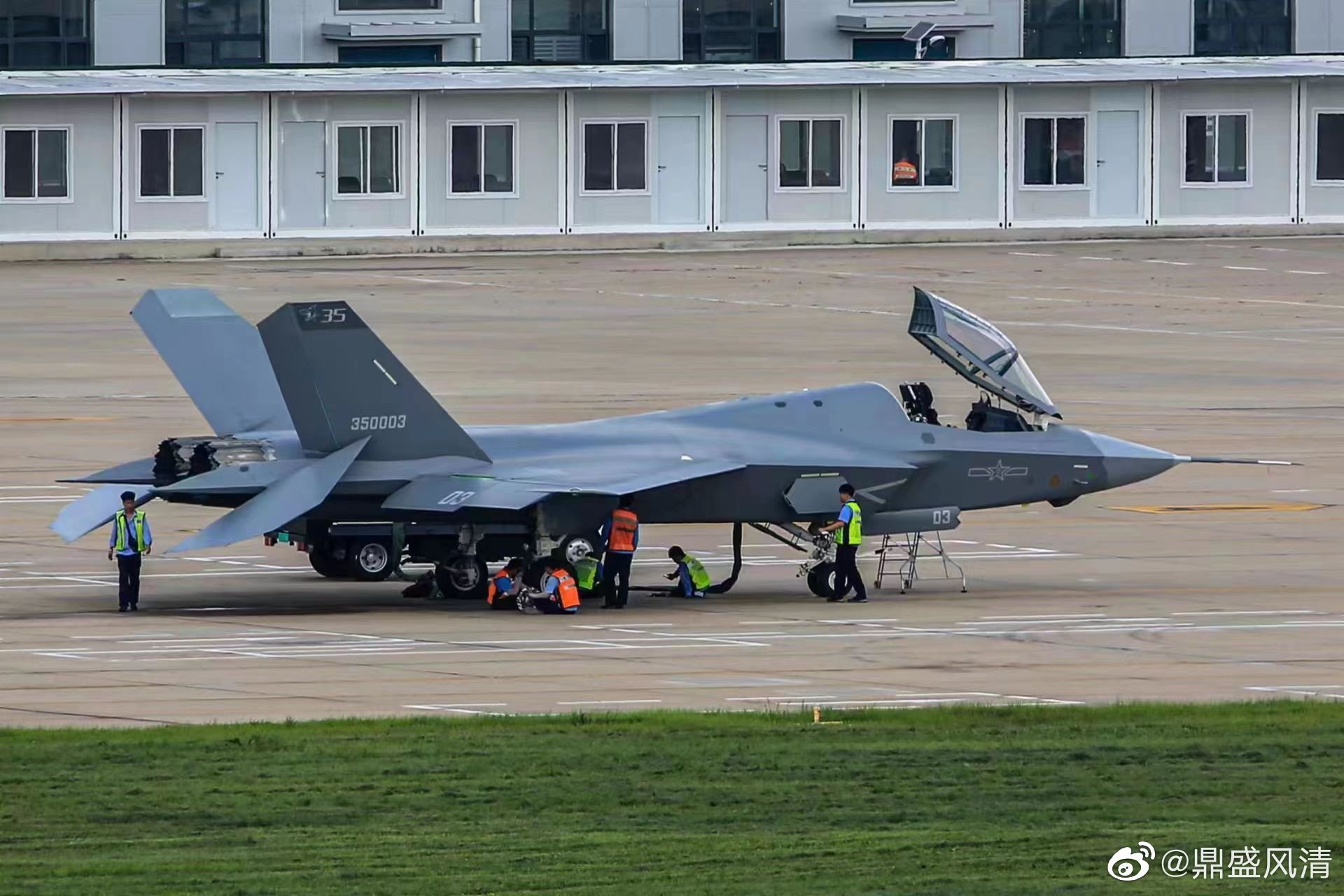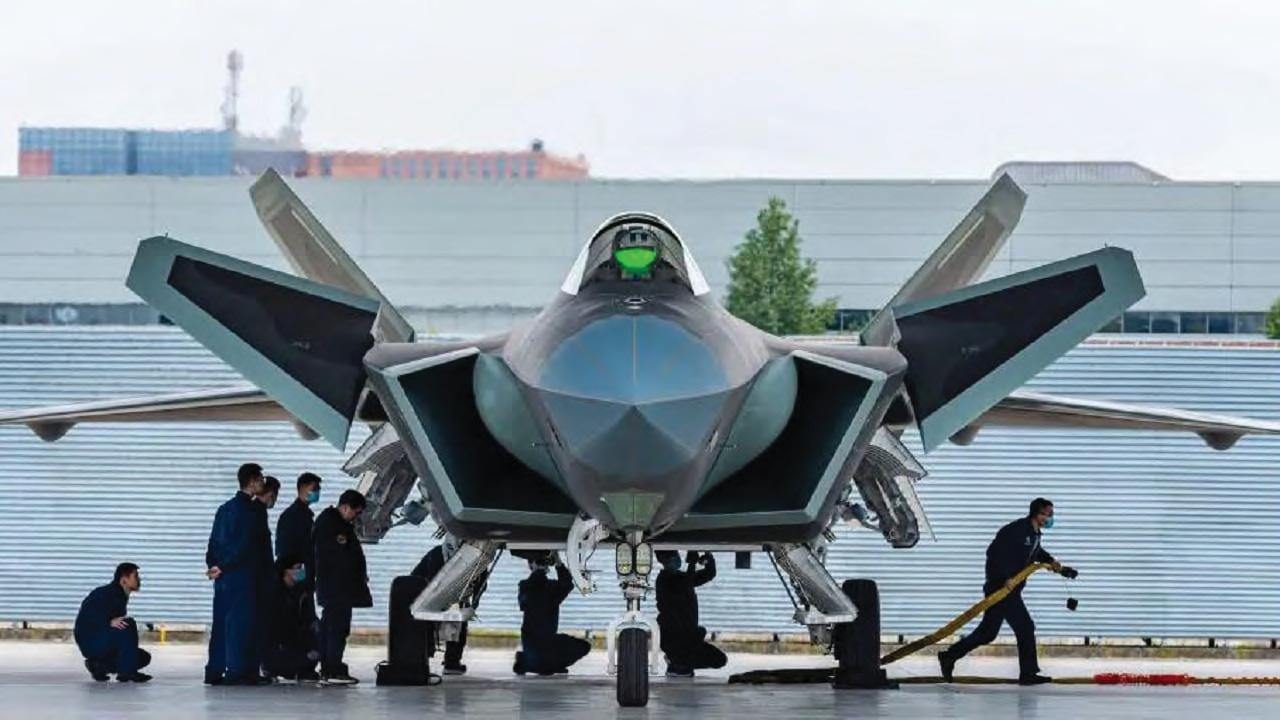Pakistan Air Force “12-14 Years” Ahead of India Due to 5th Gen FC-31 Fighter Jet Acquisition
According to retired Pakistan Air Force officer Air Commodore Zia Ul Haque Shamshi, the acquisition of the FC-31 will give Pakistan a strategic advantage over the Indian Air Force for the next 12 to 14 years.
(DEFENCE SECURITY ASIA)– Pakistan’s decision to acquire China’s fifth-generation fighter jet, the FC-31 “Gyrfalcon,” is set to provide its air force with a significant edge over its traditional adversary, India, in terms of aerial capabilities.
According to retired Pakistan Air Force officer Air Commodore Zia Ul Haque Shamshi, the acquisition of the FC-31 will give Pakistan a strategic advantage over the Indian Air Force for the next 12 to 14 years.
“India is not expected to obtain fifth-generation fighter capabilities within that period, which will grant Pakistan a significant strategic upper hand,” he stated.
Earlier this year, the Pakistan Air Force (PAF) hinted at its intention to acquire the FC-31 “Gyrfalcon,” developed by China’s Shenyang Aircraft Corporation.
PAF Chief of Staff Air Marshal Zaheer Ahmed Baber Sidhu reportedly mentioned at an event last year that the FC-31 would soon enter service with the air force.
“Negotiations have already taken place to facilitate the acquisition of the FC-31, which will soon become a part of the Pakistan Air Force,” he remarked.

Recently, Pakistani media reported that the PAF has already dispatched a group of pilots to China to train on the FC-31, further solidifying Pakistan’s move towards obtaining fifth-generation fighter jets.
The FC-31, the second stealth fighter developed by China after the J-20 “Mighty Dragon,” is not intended for export and is exclusively used by the Chinese Air Force.
Adding the FC-31 to its fleet will further bolster the PAF’s inventory of Chinese fighter jets, which already includes the J-10C and the JF-17, co-developed by Islamabad and Beijing.
Reports of Pakistani pilots training on the FC-31 underline Pakistan’s clear trajectory towards acquiring fifth-generation fighter capabilities, a development that has raised concerns in neighboring India, which still relies on 4.5-generation fighters like the Sukhoi Su-30MKI and Rafale.
India now faces the prospect of confronting not only China, which already operates the J-20 fifth-generation fighter, but also Pakistan, which is likely to field the FC-31 soon.
Analysts suggest that Pakistan’s acquisition of the FC-31, as reported by local media, is intended to replace its aging fleet of American-made F-16s and French-made Mirage 5 jets.

If Pakistan’s acquisition of the FC-31 is confirmed, it could shift the regional air power balance, presenting a significant challenge to India.
The FC-31 will enhance Pakistan’s tactical flexibility, enabling it to penetrate deeper into enemy airspace.
China is actively promoting the FC-31 for export and has established a special office to attract potential international customers.
However, Beijing has restricted the export of the J-20 “Mighty Dragon,” similar to the U.S. policy regarding the F-22 Raptor, out of concern that advanced technologies could fall into enemy hands.
The FC-31 is a single-seat, twin-engine, medium-sized fifth-generation stealth fighter with robust stealth capabilities and a competitive cost structure.

Media reports indicate that the FC-31 is being prepared for deployment on China’s aircraft carriers, akin to the F-35B and the latest F-35C developed by Lockheed Martin.
Although detailed technical specifications remain undisclosed, it is known that the FC-31’s Maximum Take-Off Weight (MTOW) has increased from 25,000 kg to 28,000 kg, and it is equipped with WS-19 engines producing 12 tons of thrust.
The fighter jet features two internal bays, each capable of carrying two medium-range air-to-air missiles, as well as hardpoints for a variety of bombs and missiles. — DSA



Comments are closed.